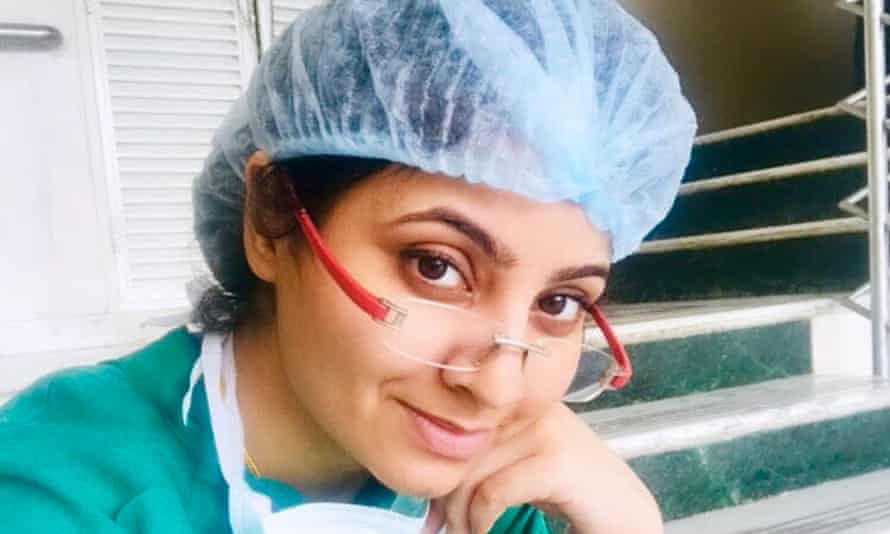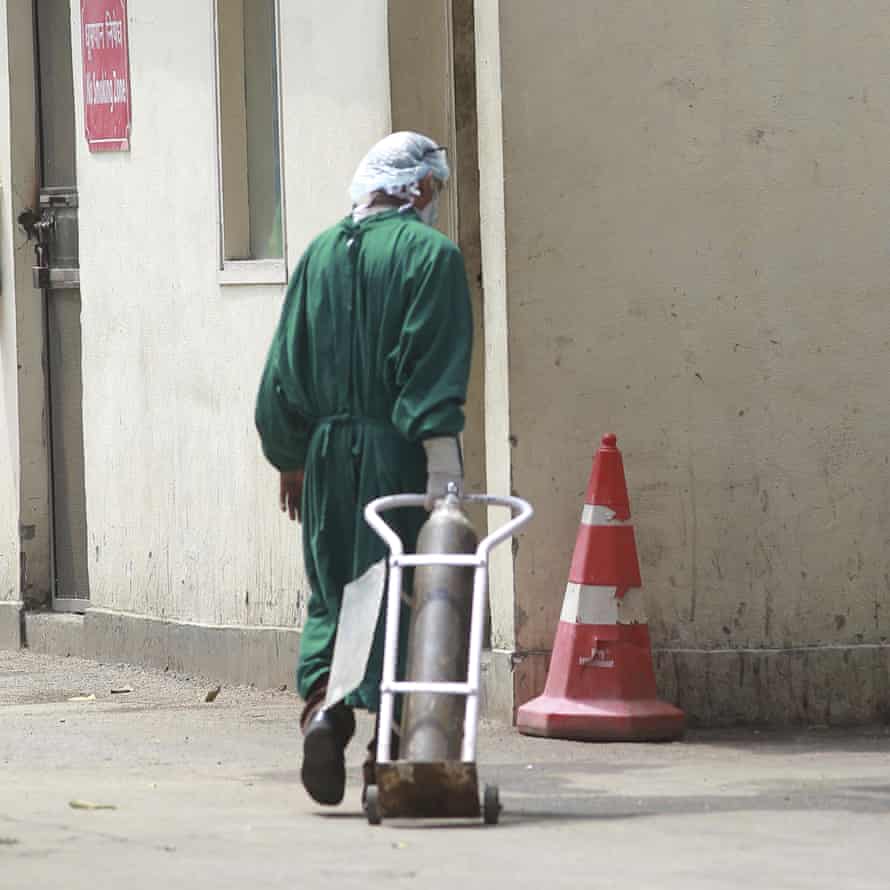During the past week, when oxygen was periodically running out at Ganga Ram hospital, one thing Dr Chahat Verma found unbearable was the look on the faces of patients when the oxygen saturation levels of another patient in the ward plunged.
“They’d lie there, watching the patient gasping, unable to breathe, and they knew we weren’t giving oxygen because there wasn’t any. The look in their eyes was one of pure terror. They knew it could be their turn next,” she said.
Verma, 26, is in her second year at Sir Ganga Ram, one of the most respected hospitals in the Indian capital. With so many of her colleagues testing positive for coronavirus, on some days she has been looking after 25-30 patients single-handedly.
To watch a patient die is, for fellow patients, deeply harrowing, particularly if as neighbours in the ward they had shared stories about their lives, families and plans. Then without warning they see a panicked scramble around the bed when the oxygen levels dip.
Verma said the clinical symptoms of the current strain of the virus that has engulfed the country seemed to be different from last year’s. “Young patients are perfectly stable. Suddenly their oxygen levels crash,” she said.
Also unlike last year, doctors and nurses have been unable to give patients oxygen that might save them. “It was very distressing. I saw them become drowsy, not reacting, as the heart and brain felt the effect of being denied oxygen. Every organ of the body needs oxygen. Its toll on the body when the body isn’t getting what it needs is awful,” Verma said.

On one horrific day she saw five patients die. She tried to revive them with CPR, but in vain. She felt anger momentarily but quelled it. “My father is an army officer and he taught me early on that anger is no good unless you channel it. I just had to focus on helping who I could,” she said.
The gruelling effort has begun to take its toll on doctors. On Saturday a doctor who was looking after Covid patients took his own life. Friends and colleagues wrote on social media that he was anguished at seeing patients suffocating.
Verma wasn’t meant to be working in a Covid ward. She joined the hospital to train under Dr Mahesh Mangal, a top plastic surgeon, in the plastic and reconstructive surgery department. But when last year the Delhi government turned the hospital into a Covid facility, earmarking 500 of its 675 beds for patients with the virus, the hospital had to train doctors like her in how to help.
Last year was bad enough but the last week has been one of horror. With the city notching up more than 25,000 new infections a day, oxygen supplies ran out across the city as no one in the government had prepared for such an explosion of cases.
On some days, Sir Ganga Ram had enough oxygen for four hours, on others two. On 23 April, 25 patients died in 24 hours who might have been saved with oxygen. Hospital managers pleaded for more supplies, and soon afterwards an oxygen tanker reached the hospital, but it had only enough for about two hours.

Verma often has multiple members of the same family in her ward. She said the hardest part of her job was telling patients that their husband, wife, mother or child was being moved into ICU or, worse, that they were not going to make it.
“When they heard these words, they lost the will to live. A woman whose daughter died just didn’t want to fight the virus any more. One couple lost both their son and daughter,” she said. “It was too much. Patients who were so relieved to get admission so that they could be treated and get better could not believe there was an oxygen shortage. They knew their lives hung by a thread.”
The hardest news to break was that a young person was not going to survive. “I had to do it. It has to be done,” she said. “A young man who was dying was worried about his parents and how they would manage without him. Another said sorrowfully that he would never take the accountancy exams he had prepared for.”
Verma lives with her parents and younger sister, who provide her with emotional support. She is scared of taking the virus home to those she loves, but accepts the risk as part of her job. After a long, tiring shift in a PPE kit with limited fluid intake and irregular meals, she gets home at 6pm and starts free online consultations for people with mild to moderate symptoms.
“Given the state my country is in with people not getting medical attention, I decided to start this four days ago,” she said. “In that time, I have received 200 phone calls.”
In the past couple of days, the oxygen situation at the hospital has improved. She feels more upbeat. “I am young, I have energy, I have a supportive family,” she said. “I am ready to face anything.”
This content first appear on the guardian
